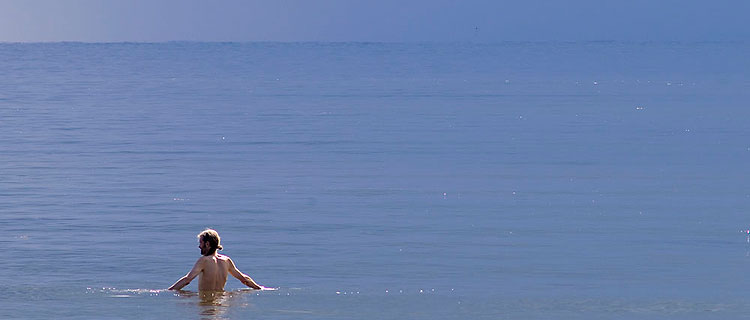
Improving marine environment
Worth paying for
People are willing to pay for a healthier Baltic Sea
People in the nine countries around the Baltic Sea attach great value to the Sea and are willing to pay in total 4 000 million Euros per year for an improved marine environment. This is shown in a new scientific study from the international research network BalticSTERN, with its secretariat located at Stockholm Resilience Centre.
For the first time people in all nine Baltic Sea countries have been asked simultaneously what they would be willing to pay for reducing eutrophication in the Sea.
A majority are willing to pay for reduced eutrophication effects, for example, improved water transparency, less algal blooms and less oxygen deficiency in deep-sea bottoms.
Download the scientific paper on the study here
Unique study with 10 500 respondents
The average willingness to pay varies considerably across countries, ranging from four to 110 Euros per person and year. If income differences are considered the range generally decreases however. Swedes are willing to pay the most followed by Finns and Danes. The lowest willingness to pay is found in Russia, Lithuania and Latvia.
Every second respondent had experienced the effects of eutrophication, mostly in terms of water turbidity and algal blooms, and many are worried about the environmental state of the Baltic Sea.
The study also shows that most people care about the Baltic Sea as a whole and not only about their local sea areas.
10 500 people participated in the survey, either through online questionnaires or in face-to-face interviews.
"This is a strong message to decision makers that there is public support for further actions to improve the state of the Sea. Doing too little will be costly," says Linus Hasselström, analyst at Enveco and scientific coordinator of the study in Sweden.
The results from the study will be included in a cost-benefit analysis to be published by the BalticSTERN research network during autumn 2012.
Related info
Read the press release about the Swedish results here Pdf, 1016.5 kB.
Pdf, 1016.5 kB.
Läs det svenska pressmeddelandet här Pdf, 1018.8 kB.
Pdf, 1018.8 kB.
Download the scientific paper on the study here
Authors
Ahtiainen Heini, Hasselström Linus, Artell Janne, Angeli Daija, Czajkowski Mikoùaj, Meyerhoff Jürgen, Alemu Mohammed, Dahlbo Kim, Fleming-Lehtinen Vivi, Hasler Berit, Hyytiäinen Kari, Karlõseva Aljona, Khaleeva Yulia, Maar Marie, Martinsen Louise, Nõmmann Tea, Oskolokaite Ieva, Pakalniete Kristine, Semeniene Daiva, Smart James, and Söderqvist Tore.
Contact details
Linus Hasselström, Enveco Environmental Economics Consultancy
Phone: +46 70 498 78 20
Email: linus@enveco.se
Heini Ahtiainen, MTT Agrifood Research Finland
Phone: +358 40 8610 976
Email: heini.ahtiainen@mtt.fi
Janne Artell, MTT Agrifood Research Finland
Phone: +358 40 1726 426
Email: janne.artell@mtt.fi
Kerstin Blyh, BalticSTERN Secretariat, Stockholm Resilience Centre
Phone: +46 10 698 1569
Email: kerstin.blyh@stockholmresilience.su.se






